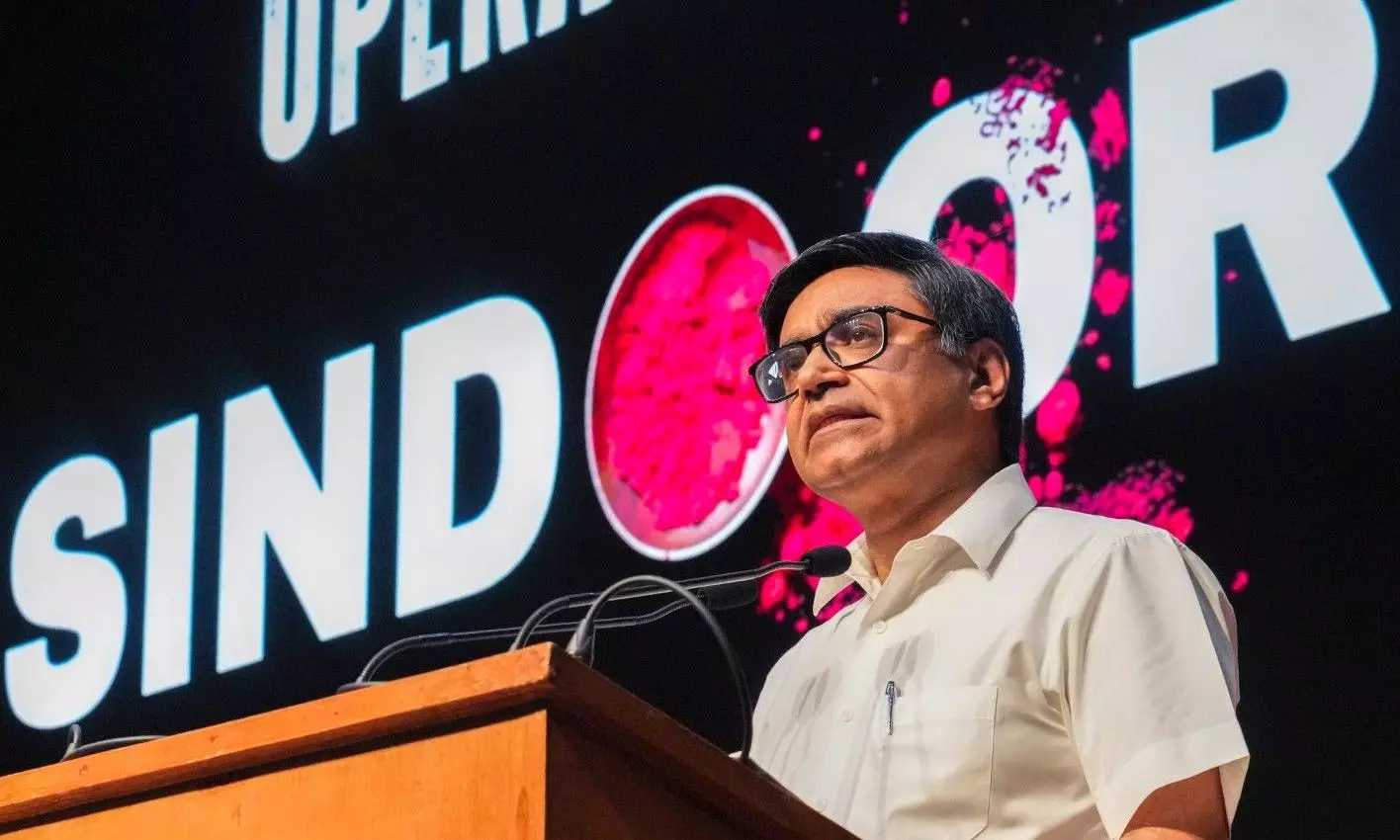
Operation Sindoor aligns with UNSC call against terrorism, says India
India has conveyed to the global community that the strikes were proportionate, and non-escalatory, and aimed at deterring further cross-border terror attacks

India has asserted that its recent military action, Operation Sindoor, targeting terror infrastructure in Pakistan and Pakistan-occupied Kashmir (PoK), is fully aligned with the United Nations Security Council (UNSC) statement to bring the perpetrators and the backers of the Pahalgam terror attack to justice.
The Indian government conveyed to the international community that the Indian military strikes were responsible, proportionate, and non-escalatory, and were aimed at deterring further cross-border attacks.
India calls out 'Pak duplicity'
India stated that the strikes were carefully planned, taking into account Pakistan’s long track record of perpetrating cross-border terrorism in India. It also highlighted Pakistan's duplicity in its handling of terrorism under pressure from the international community.
India’s Foreign Secretary Vikram Misri recalled how Pakistan had misled the Financial Action Task Force (FATF) to get off its grey list.
He cited the example of Sajid Mir, one of the key accused in the Mumbai terror attacks, who was initially declared dead by Pakistani authorities but was later — under international pressure — revealed to be alive and subsequently arrested.
Also Read: 'No regret, despair': JeM chief Masood Azhar after kin killed in Operation Sindoor
Terror links
Foreign Secretary Vikram Misri underscored the link between The Resistance Front (TRF), which was responsible for the Pahalgam attack, and Pakistan-based UN-proscribed terror group Lashkar-e-Taiba (LeT).
Misri said there was clear evidence to link Pakistan with the Pahalgam attack, including communication nodes of terrorists "in and to Pakistan". He highlighted that Indian intelligence has mapped the planners and support networks behind the April 22 attack.
He cited Pakistan’s lack of demonstrable steps against terror infrastructure in its territory and its history of misleading international bodies, including efforts to water down pressure from UNSC to remove references to TRF, to justify India’s decision to act.
Also Read: Post Operation Sindoor, LeT aide posts clips of funerals in Muridke, Bahawalpur
India's global outreach
In the hours after the strikes, India reached out to key global players to brief them about the reasons behind its military strikes on nine terror targets in Pakistan and Pakistan-occupied-Kashmir in retaliation for the Pahalgam terror attack,
External Affairs Minister S Jaishankar spoke with his counterparts in Germany, Japan, France, Spain, and Qatar, and briefed them about India's action against the cross-border terrorist infrastructure.
The EAM also thanked the global leaders for their solidarity, stressing the importance of zero tolerance for terrorism.
Meanwhile, National Security Adviser Ajit Doval held seperate high-level calls with his counterparts from the United States, China, the United Kingdom, Russia, Saudi Arabia, the United Arab Emirates, Japan, and France, to brief them about the details of Operation Sindoor.
Doval assured them that India has no intent to escalate tensions but is prepared to respond resolutely if Pakistan chooses to escalate.
Also Read: J-K: Army soldier killed in Pakistan’s shelling across LoC in Poonch
Briefing to UNSC
Foreign Secretary Misri also briefed the ambassadors of the 13 permanent and non-permanent UNSC members, including China and Russia, reiterating that India’s strikes were targeted and measured.
Misri apprised the envoys about the reasons behind India's decision to carry out the military strikes on the terror infrastructure in Pakistan and PoK.
Watch Here: India’s Fearless Women in Uniform: Meet Col. Sofiya Qureshi & Wing Commander Vyomika Singh
He emphasised that the strikes hit critical terror hubs, including the LeT’s Markaz Taiba in Muridke, Jaish-e-Mohammad’s Markaz Subhan Allah in Bahawalpur, and Hizbul Mujahideen’s Mehmoona Joya facility in Sialkot.

